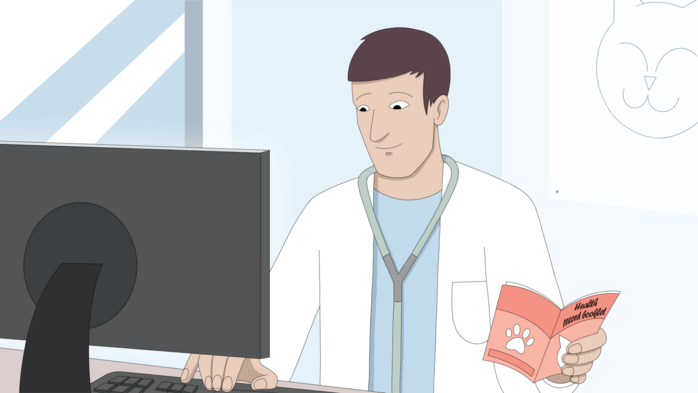
Treating feline hyperthyroidism
Hyperthyroidism, where the thyroid glands produce excessive thyroid hormones, is a common condition of older cats. Classic signs include weight loss, a good or increased appetite, increased thirst, increased activity or restlessness, an increased heart rate and a poor coat condition.
Main therapeutic strategies to treat hyperthyroidism
If hyperthyroidism is left untreated, there can be serious consequences. High levels of thyroid hormone can cause changes to the heart, leading to heart failure; can cause hypertension (high blood pressure), leading to damage to many organs; and can be associated with chronic kidney disease.
Treatment is aimed at controlling thyroid hormone concentrations and avoiding or managing any complications (such as high blood pressure). In successfully treated cats, signs of hyperthyroidism can be completely reversed, with no remaining evidence of disease.
Types of treatment for feline hyperthyroidism
Fortunately, hyperthyroidism is a disease that can be readily treated in most cats, and several options are available:
- Medical management
- Surgery
- Radioactive iodine
- Dietary treatment
Medical management
Daily medication with drugs is a common, effective option to treat hyperthyroidism. Anti-thyroid drugs help block the production of thyroid hormones and so are able to normalise the concentration of these hormones in blood. These drugs do not cure the underlying cause of the hyperthyroidism, and daily treatment will need to be continued for the rest of the cat’s life, but many cats are very successfully managed this way.
Surgery
This treatment consists of surgically removing the abnormal overactive thyroid tissue. Surgical removal of this abnormal tissue can be a permanent cure, although some cats do develop recurrent disease if unaffected normal tissue later becomes diseased. Following surgery, blood calcium concentrations are usually monitored carefully for a few days as there is a risk of damage to parathyroid glands during surgery (small glands associated with the thyroid gland that help control blood calcium levels). If these become damaged, additional drug therapy may be needed to control blood calcium.
Radioactive iodine
This is a safe, effective and usually curative treatment. It is a form of radiation therapy but in this case radioactive iodine is given by a simple injection (or sometimes by mouth) and this iodine is taken up and concentrated in the abnormal thyroid tissue. The radioactive iodine destroys the abnormal tissue but leaves normal thyroid tissue unaffected. Unfortunately, because this treatment involves radioactive material, it is only available at certain veterinary centres (e.g. some referral practices), and cats have to remain hospitalised for a period of time after treatment.
Dietary treatment
Iodine, aquired from the diet, is required by the thyroid glands to produce hormones. This means that if a diet is fed with a restricted iodine content, it can help limit thyroid hormone production and normalise concentrations of these hormones in your cat’s blood. This can only be achieved with a specially formulated therapeutic diet from your vet, and to be effective your cat cannot eat anything else. Although this can be a successful treatment, the need to ensure no other foods are eaten means it is not suitable for all cats.
Medications
Whatever treatment is chosen for management of the hyperthyroidism, most cats will need an initial course of anti-thyroid drug medication to stabilise the condition, and in some these may be used long-term. In cats, as in humans, two main anti-thyroid drugs are used - methimazole or carbimazole - and these belong to a group of drugs called thioamides or thioimidazoles. The drugs come in tablet or liquid form and are usually given one to three times daily, depending on the formulation and the individual need.
Some cats with hyperthyroidism will have associated hypertension (high blood pressure) and will also require medication (such as amlodipine) to control their blood pressure. It is recommended that blood pressure is checked at the time of diagnosis of hyperthyroidism and throughout treatment - in some cats, successful treatment of the hyperthyroidism leads to resolution of the hypertension (and anti-hypertensive treatment can be withdrawn) but in some others, blood pressure may increase after treatment for hyperthyroidism.
